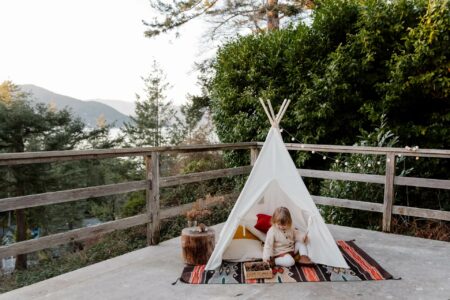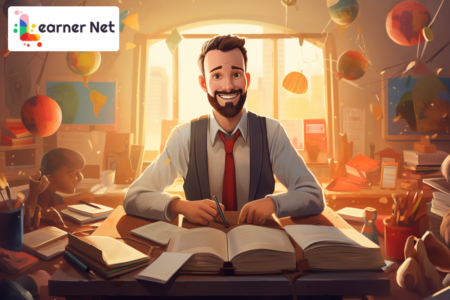The world economy is rapidly progressing into an Artificial Intelligence (AI) and Data Science driven age.
According to the World Economic Forum (WEF), in the 2020 Future of Jobs and Skills Report, 65% of students entering primary school today will eventually work in jobs that do not exist now.
The report concluded that the world is presently shifting away from a model of education that emphasizes only knowledge. This is because in the age of AI, knowledge can be easily obtained from machines.
In-Demand Skills of the Future
The WEF reported that the following skills will be in high demand, besides state of the art technical and scientific skills:
- Problem solving skills
- Being able to apply knowledge practically
- Creativity, flexibility, resilience and active thinking
- Ability to quickly acquire new skills
- Social, communication and collaborative skills to work effectively with others
In addition, social and emotional skills are highly sought-after to apply technological advances to the society.
The future of work belongs to people with expertise in multiple domains. Therefore, a large premium is now placed on an education that produces lifelong learners who are in love with the learning process. Genuinely engaged and passionate learners will be able to replicate the learning process in a variety of skill and knowledge areas and adapt to sudden and ongoing changes as technology rapidly progresses.
The future of jobs is fluid and multiple skills are required in every worker in this new economy. Emotional intelligence and the ability to communicate, negotiate and collaborate with multi-skilled teams is even more important in this new environment.
Nurture Future Ready Children Through Social Learning
The above educational aims look like a tall order, but these objectives are achievable through social learning.
Social learning is a much more effective method to acquire skills and knowledge, because learning in groups is the most natural way children and adults learn. Learning in groups helps to make learning more natural, interactive and pleasurable for students.
Building a strong association between learning and pleasure is the surest way to create lifelong learners who are in love with the process of learning. Very few children will admit to loving exams but if teachers can cause students to love the learning process, then we will be able to successfully nurture future-ready children who can learn and pick up new and different skills through their whole lives.
What is Social Learning?
Learning in pairs, groups and classes is not a new idea.
Lev Vygotsky, a founding educational psychologist, first discovered that learning in children was mainly a social process in the 1920s. This means that for learning to take place there must be social bonds and relationships.
The stronger the bond and trust, the better the learning.
“Students care when they believe that other people care about them. They are less likely to drop out, and more likely to feel positively about school, when they have ongoing connections with teachers. Likewise, when they associate with highly engaged peers, they become more engaged themselves.” – Carnegie Foundation
Today, Social Learning Theory is summed up in the statement that “people (and children) learn best through observing and imitating others in communities.”
Children learn by imitating adults and other children. The more role models there are in a child’s learning environment, the better the learning outcomes.
We Learn Best Through Group Interaction
Educational Psychology champions collaborative learning as the gold standard for learning.
The Benefits of Social Learning:
- The new knowledge which we learn, combines with the knowledge we already have. This creates completely new and unique knowledge in every learner.
- It is extremely important that learners get to share their new understanding with others.
- Learning in small classes offers every learner the opportunity to gain additional understanding as they share and listen to other learners.
Learning is more effective when learners get to acquire skills and knowledge with others and when they get to share their new understanding with one another.
Effective Classroom Practices For Social Learning:
- Lessons must have planned time for students to talk and share the learning which they have made with their peers.
- Teachers create opportunities for students to learn from the thinking processes of other learners.
Lifelong Learners of the Future
Social learning with an experienced and skilled teacher achieves the objectives of being a lifelong learner because learning in groups is highly motivating for children who get to share and show their learning with the group.
Learners must negotiate, communicate and collaborate with one another to achieve their tasks. Social, collaborative and communication skills are trained in students who solve problems in groups.
Building and sustaining the motivation for learning for every lesson is essential in creating lifelong learners who are future-ready to take advantage of the learning opportunities available to us through technology. Learners look forward to learning when it is with an encouraging and supportive community.
Learners who fall in love with the learning process are able to persevere when learning gets challenging and solve difficult problems through acquiring different strategies, skills and knowledge.
Lifelong learners are children who are able to direct and decide what they want to learn. These children have the high levels of motivation required to continually acquire new knowledge and skills so that they can be better versions of themselves and will be able to thrive in the future economy.
Follow us on Facebook for more useful educational content and subscribe to our newsletter to get these articles in your mailbox!
Useful Links
Video: This tech expert argues that we’re teaching our kids useless knowledge – World Economic Forum
This article was written by Teacher Isaac from Learner Net. Article updated on 30 June 2021.








5
/5Based on 0 rating(s)
By 01 reviewer(s)
vytvorenie úctu na binance
Can you be more specific about the content of your article? After reading it, I still have some doubts. Hope you can help me.